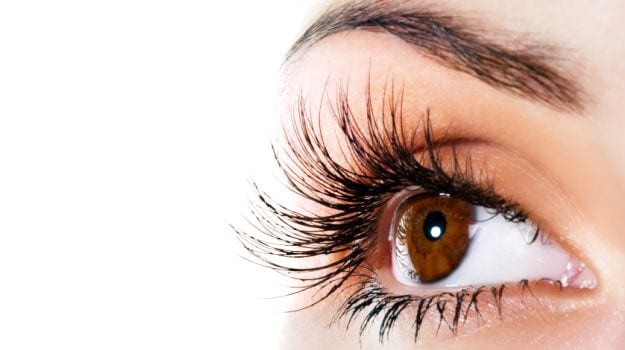Common causes of cataract include aging, living a poor lifestyle and chronic health conditions. These home remedies will help you treat the condition.

These home remedies will help in slowing down cataract development
HIGHLIGHTS
- A diet rich in antioxidants can help in preventing cataracts
- Eye drops can be effective in treating cataracts
- Avoid alcohol and smoking in order to prevent cataract
Known to be most common causes of loss of vision in people above the age of 40, cataract is the most common cause of blindness around the world. Apart from causing complete blindness, cataract makes a person have a fogged up vision. Common causes of cataract include aging, living a poor lifestyle and chronic health conditions. It takes years for a cataract to develop in the eye. The way it impacts vision depends on its density and location in the eye. While eye operations and surgeries are the conventional methods of treating cataracts, in this article, we will talk about effective home remedies for treating cataracts.

Photo Credit: iStock
Symptoms of cataract
In its initial stages, a cataract changes only a small area in your eye. A person might not even notice a change in vision loss in such a case. As it grows larger, it affects more area off your eye lens. This is the time when symptoms of cataract become more noticeable. Common symptoms of cataract include blurry vision, seeing halos around lights, experiencing sensitivity to lights, fading away of yellowing of colours, frequent change in eye glass and contact lens prescription, experiencing difficulty in reading because reduced black and white contrast.
Also read: Say Goodbye To Puffy Eyes And Dark Circles With These Remedies
Following are a few home remedies which will help in preventing cataract:
1. Diet
As mentioned above, diet plays an important role in preventing cataract and symptoms of cataract. Eating fruits and vegetables which are rich in antioxidants is important to keep cataract development at bay. A diet rich in antioxidants can help in protecting eyes from oxidative stress which causes cataract. Antioxidants also play the role of maintaining enzymatic pathways that prevent formation of cataract.

Fresh fruits and vegetables are good sources of antioxidants. Phytonutrients in fresh fruits and vegetables have phytonutrients which delay development of eye diseases like cataract.
Foods rich in Vitamin A are known to prevent loss of vision because of degenerative conditions such as cataracts. Being deficient in Vitamin A can cause possible damage to retina, which is another contributor to blindness. Foods rich in Vitamin A include carrots, dark leafy green veggies and sweet potatoes.
Including foods rich in Vitamin C in your diet can also reduce risk of developing cataract. Citrus fruits, peppers, berries, broccoli, tomatoes and tropical fruits are all instances of foods rich in Vitamin C.
Also read: Alexandria's Genesis (Purple Eyes): Fact Or Fallacy?
Foods rich in Vitamin E are also known to reduce formation of cataract. Wheat germ, sweet potatoes, almonds and spinach are all foods rich in Vitamin E.
Zinc is another important mineral which is required to prevent cloudy vision and poor night vision. Zinc helps bring Vitamin A from the liver to the retina. Kefir, yogurt, chickpeas and pumpkin seeds are all rich sources of zinc.
Foods rich in omega-3 fatty acids can reduce risk of cataract development and their progression. Salmon and chia seeds are good instances of foods rich in omega-3 fatty acids.
Lutein and zeaxanthin: These are essential carotenoids which have been proven to prevent cataract. The two are together found in eye lenses. They are responsible for filtering high-energy blue wavelengths of light which helps in protection and maintenance of healthy eye cells. Broccoli, kale, spinach, collard greens, turnip greens and corn are good instances of foods rich in lutein and zeaxanthin.
2. Protection from sun
Exposure to harmful ultraviolet (UV) rays of the sun can contribute to development of cataract in the eye. UV light can oxidise proteins in the eye. The more your eyes are exposed to sun's UV rays, the more is the risk of cataract. Preventing eyes from getting exposed to the sun can be done by wearing sunglasses or a hat which blocks sunlight from reaching your eye. This can help in delaying formation of cataract.

Also read: The Best Eye Care Tips Ever
3. Lifestyle
Some habits in your daily lifestyle can contribute to increasing your risk of cataract formation. These habits include alcohol consumption and smoking. Studies say that people who consume 1 or more alcoholic drink have moderate risk of cataract. The risk is more in those who drink more on a regular basis. Similarly, smokers are at higher risks of cataract than non-smokers.

4. Eye drops
Lanosterol, an organic compound in eye drops can help in improving vision. It dissolves clumped proteins that lead to the formation of cataracts. Eye drops have been considered to be an effective treatment for cataracts. However, eye drops might not be so successful in dealing with aggressive cataracts.
Disclaimer: This content including advice provides generic information only. It is in no way a substitute for qualified medical opinion. Always consult a specialist or your own doctor for more information. NDTV does not claim responsibility for this information.
DoctorNDTV is the one stop site for all your health needs providing the most credible health information, health news and tips with expert advice on healthy living, diet plans, informative videos etc. You can get the most relevant and accurate info you need about health problems like diabetes, cancer, pregnancy, HIV and AIDS, weight loss and many other lifestyle diseases. We have a panel of over 350 experts who help us develop content by giving their valuable inputs and bringing to us the latest in the world of healthcare.














